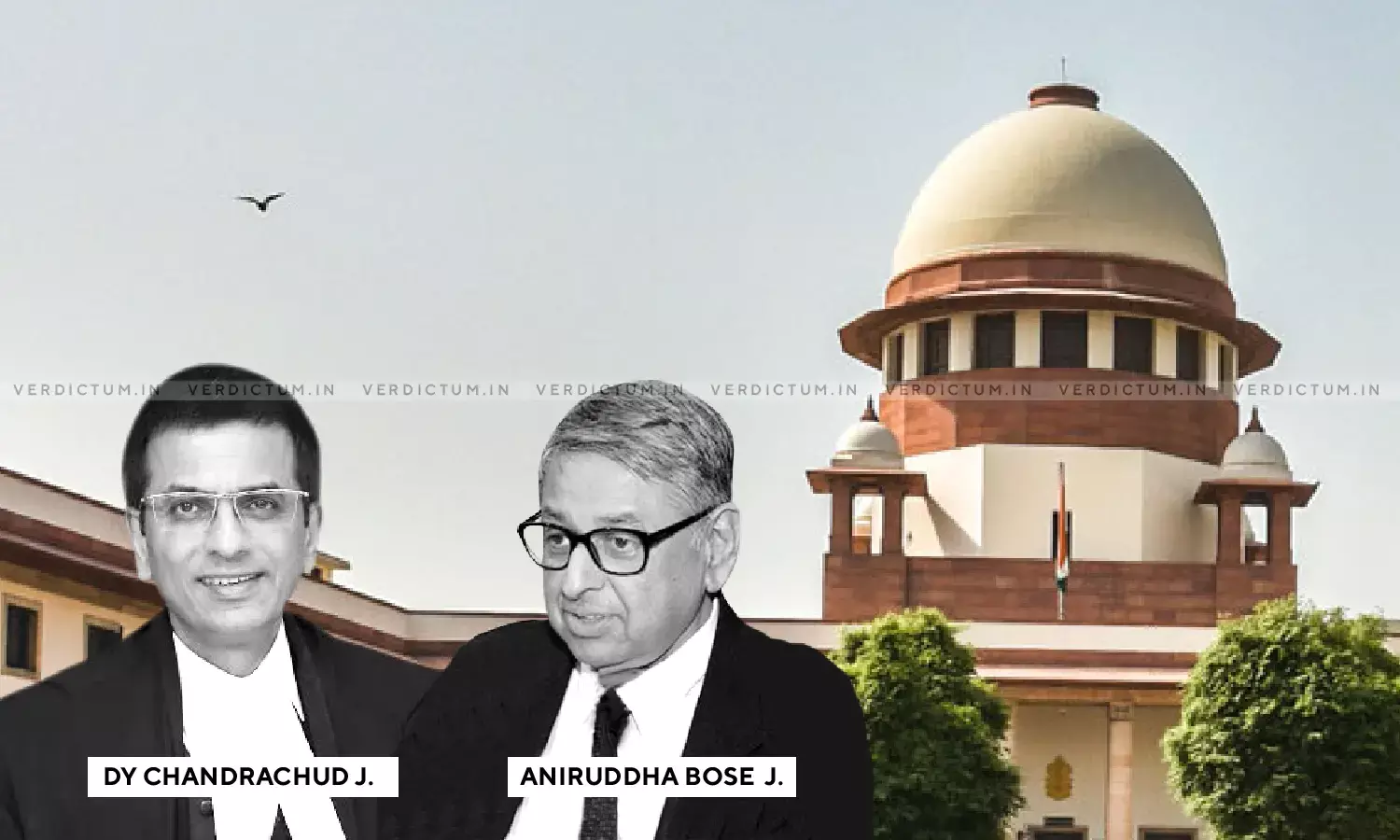Any Step Taken By Employer To Reduce Monetary Benefit Must Be Under Authority Of Law - Supreme Court

A Supreme Court Bench of Justice Dhananjaya Y. Chandrachud and Justice Aniruddha Bose heard an appeal regarding the validity of an order of the Respondent regarding the Appellant's date of birth.
Mr. Kaushal Yadav appeared on behalf of the Appellant and Ms. Nandini Sen Mukherjee appeared on behalf of the Respondents.
The Appellant approached the Supreme Court questioning the validity of the employer (Respondent) treating his year of birth as 1945, as it had had relevance for computing benefits accruing from a Voluntary Retirement Scheme.
The Appellant contended that his year of birth is 1949, but the records of the Respondent reflected his year of birth to be 1945. The Appellant claimed that he came to know of this discrepancy only after he was relieved from service. He invoked the writ jurisdiction of the High Court, and the Writ Petition was disposed of by a Single Judge with a direction to the Appellant to make a fresh representation before a committee made by the Respondents. The committee rejected the Appellant's representation.
The Appellant's plea against the rejection order was dismissed by the Single Judge and subsequently the Division Bench of the High Court. The order of dismissal was impugned before the Supreme Court.
The Appellant primarily based his claim on his service book maintained by the Respondents, which reflected the birth year to be 1949. The Counsel for the Appellant also relied on a LIC Policy, which reflects the year of birth to be the same. The Counsel also submitted certain payslips before the Court, which showed a birthday message and specified the year 1949.
The Counsel for the Respondents contended that his year of birth as per the statutory Form B was 1945. She further urged that since the Appellant's service book was created later, the Appellant filled his age as it was when he had joined the organization, thereby creating the inconsistency.
The Supreme Court found that the Respondents had proceeded in the manner in a very mechanical manner and their action of correcting the age based on their perception of an error should have been done after giving an opportunity of hearing to the Appellant.
The Bench found various documents including the LIC policy consistently reflecting 1949 as the year of birth. Further, they held that although the entry in Form B has highly probative value, it is not conclusive proof.
The Supreme Court proceeded to hold that "VRS benefit is an entitlement and assumes the character of property to the employee concerned once his application for VRS is accepted. It is the right of a person under Article 300A of the Constitution of India to have the VRS benefit to be given on accurate assessment thereof, the employer here being a public sector unit. If at the time of quantifying the VRS benefit after accepting an employee's application for voluntary retirement, the employer take any step that would reduce such benefit in monetary terms, such step shall have to be taken under the authority of law. We find the action of the employer lacking in authority of law".
The Bench found that the actions of the Responded were lacking authority because they failed to follow the principles of natural justice, as the decision of not following the service book record was taken without giving an opportunity of hearing to the Appellant.
Therefore, the Supreme Court held that the Single Judge and Division Bench of the High Court did not appreciate the materials available properly, and therefore, set aside their judgments and orders. The Court further directed the Respondents to extend the benefits of VRS to the Appellant treating his birth year as 1949.
Click here to read/download the Judgment

